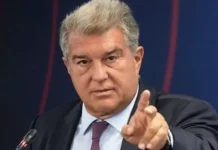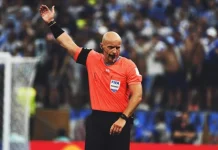The 2025 edition of the FIFA Football Law Annual Review (FLAR) that was conducted in February 2025 at the University of Miami School of Law, highlighted a critical turning point in the governance of FIFA organized football. First time the event was broadcast in an open manner to the whole world audience which is an artificial decision by FIFA to increase transparency and expand the possibility to see its own legal acts.
This review was conducted in the presence of FIFA officials, legal academicians, professionals, and stakeholders in the review of the current developments in the regulatory environment, landmark judicial pronouncements, and the emerging trends on international football laws. The event serves the Strategic Objectives of FIFA (20232027) Goal 1 of namely to conduct reforms in the area of statutes, strengthen compliance, and improve the modernization of governance that should reflect the constantly growing complexity of the legal environment that football finds itself in.
The FLAR remains to be used as a mirror as well as a compass of the challenges encountered in 2024 and a support to refer in sections that require regulatory recalibration in 2025 and beyond.
Key Regulatory Themes and Judicial Developments
Transfer Matching System and Bridge Transfers
One of the themes was to improve the integrity of the Transfer Matching System (TMS) of FIFA. The system that was created to introduce cyberspace into the transfer market of international players has been exposed to controversies like bridge transfer-comparisons made to temporarily transfer players between teams. The 2025 review by FIFA came with stricter measures of compliance, which weaken the practices that may be used to manipulate football, and strengthen the image of data accountability by the associations.
These measures have followed judgments made by the Court of Justice of the European Union, who in 2024 required changes to make sure that the contents of the transfer regulations at FIFA accord with the EU rules on the free movement and fair competition. Such shifts also imply that FIFA should constantly balance its internal expectations with the supranational law to ensure it provides a fair decision, especially in cases where no supranational law would interfere.
Multi-Club Ownership and Conflicts of Interest
The offloading of multi-club ownership (MCO) models is an incremental challenge as well. Since teams have holdings in several other teams across the world, FIFA is facing pressure to resolve the legal and ethical issues that arise in the anchoring of competitive integrity. Debates during the review addressed the manner through which FIFA could implement clearer policies in an attempt to curtail alleged cases of conflicts of interest taking into consideration commercial rights and patterns of investments in global football.
What is especially important to these developments is that an increasing number of the private equity houses and state-sponsored investors have built up their portfolios in football, which begs questions regarding both transparency of governance and the application of regulations.
Strengthening Compliance and Stakeholder Education
Judicial Bodies and Legal Capacity Building
The sessions on stakeholder education and litigation preparedness, headed by Miguel Lietard, the Director of Litigation at FIFA, and Carlos Schneider, the Head of Judicial Bodies Education, were held. Their presentations also contained procedural explanations regarding arbitration lawsuits being presented at the Court of Arbitration for Sport (CAS) with a significant focus on frequent pitfalls as well as the best practices to be adopted by legal players in involving any international dispute.
The more ambitious legal education agenda of FIFA, envisioned in projects such as FIFA Diploma in Football Law and international summer courses, is to enhance the legal literacy level at club, association, and player union levels. Through the dynamic development of law, FIFA eagerly aims to decrease the violation of regulations, as well as the rise of institutional confidence.
Shifting from Enforcement to Prevention
These efforts represent a shift in legal philosophy in that the previous reactive enforcement is slowly bowing to preemptive education and partnership. Instead of merely punishing violations, FIFA seems to be investing in a governance model that promotes its member associations to voluntary compliance, conflict prevention using the system of early dispute resolution as well as legal strength.
This forward-looking approach reflects an understanding that legal governance in sport must be both authoritative and participatory if it is to be effective on a global scale.
FIFA’s Commitment to Integrity and Fairness
Standardization and Judicial Efficiency
Alasdair Bell, Deputy Secretary General, stressed that goodness and procedural integrity should be the guiding principle behind legal decisions in football, and neither political expediency nor the media discourse should play a major role. His remarks came at a time when there is an increasing campaign to have more predictability and effectiveness in the discipline across FIFA regions.
Judicial efficiencies like case triaging systems, digital filing systems, etc., are supposed to speed up the adjudication process without hobbling procedural protections. With the increase in the volume of legal cases in football, the capacity of FIFA to handle the docket this voluminous work in speed and fairness are being challenged.
Anti-Doping and Integrity Mechanisms
The 2025 review also emphasized tools of integrity such as new measures related to anti-doping as well as the guidelines concerning the enforcements of the manipulation of matches which were not ambiguous. In addition to confirming its adherence to the World Anti-Doping Agency (WADA), FIFA also created several specific disciplinary measures that could be used to respond to match-fixing and other unscrupulous practices among the intermediaries and officials.
These reforms are an indication of a move to strengthen an ethical foundation of world football in a phase when the field is becoming more prone to reputation threats.
Navigating Emerging Legal Challenges
International Transfers and Youth Safeguards
A notable area of reform involved international transfers of amateur players. FIFA introduced new safeguards designed to prevent the exploitation of minors and protect their development rights. These include mandatory welfare assessments, education guarantees, and restrictions on cross-border movement unless in alignment with child protection protocols.
The legal structures underpinning youth transfers remain one of the most contested and sensitive topics in football governance. Ensuring that financial incentives do not override child welfare remains a top priority.
Equality and Labour Rights in Women’s Football
The review highlighted FIFA’s initiative to embed minimum labor standards for female players within regulatory frameworks. Provisions include mandatory maternity leave protections, fair wages, and contractual clarity—marking a tangible shift toward embedding gender equity in the organization’s legal structures.
While progress remains uneven across regions, FIFA’s formal recognition of these standards reflects both external pressure and internal acknowledgment that legal reform must address structural inequalities in the women’s game.
External Judicial Pressures and Legal Globalization
FIFA’s ongoing interaction with supranational courts, particularly the European Court of Justice, featured prominently in the 2025 review. Legal rulings from 2024 have increasingly curtailed FIFA’s ability to act autonomously, especially on matters of competition law and player mobility.
This trend has forced FIFA to reassess the elasticity of its regulatory frameworks and to adapt policies that are interoperable with transnational legal systems. The tension between FIFA’s desire for regulatory sovereignty and the legal imperatives of national and international courts is shaping a new era of conditional rule-making in global sport.
Shaping the Future of Football Law
FIFA Football Law Annual Review is becoming an open place of self-criticism and constructive discussion. In the context of this year’s gathering, legal practitioners of the world discussed possible innovation in the dispute expressions, mechanisms of transparency, and anti-corruption guidelines.
The unspoken implication was that the legal framework of football needs an update not merely to keep up with the changes in the economy and politics but also to stay legitimate in the other rapidly globalizing, even louder, community of football fans.
This person has spoken on the topic: Football analyst Ben Jacobs commented that the Review “illustrates FIFA’s attempt to modernize football’s legal frameworks amid mounting complexities, yet the challenge remains to ensure these changes translate into equitable enforcement and global harmonization.”
The Club World Cup will see a range of new innovations this summer.🏆
1⃣ Referees will wear body cameras with the footage used on live match broadcasts.
2⃣ Footage from referee monitor reviews will be aired live in stadiums.
3⃣ Advanced semi-automated offside technology will… pic.twitter.com/9YLTffZc2H
— Ben Jacobs (@JacobsBen) June 6, 2025
These words represent a wider attitude towards the legal development of FIFA, which is on one hand supportive towards change, but on the other one, suspicious towards action.
With the legal landscape in the world of football shifting further, FIFA will find more pressure to produce credible, inclusive and enforceable governance. The organization is at a point where not only is the aspect of legal credibility no longer a second-order issue but one that defines its institutional future. This course of action requires further enterprise and legal precision, as well as an appetite to challenge persisting asymmetries of the global game that remain embedded in structure.













